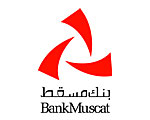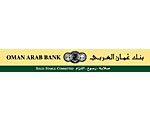
33% of Internet users believe companies found in top search results must be a major brand - indicating that top rankings transmit brand equity. Making your website better known makes your business better known and lets you communicate with more prospective and existing customers. Your website needs to be made visible to those who are interested in your products and services but don’t yet know your Web address. Visitors to your site will be a mixture of those who know of your business already, those who have found you via links or ads from other sites and those who have arrived as a result of using a search engine. To ensure your site gets included in these databases and gets the highest possible listings means submitting your URL (www.iveabusinessinoman.com) to search engines. So what’s involved?
What’s a Search Engine?
Let’s assume your firm’s built a website and you’ve been handed the responsibility of making sure the world and his wife knows about it. But how do your customers - current and potential - find your site amongst the millions of sites on the Web? There are so many places to visit on the Web that you’d probably have to spend the rest of your life online to visit them all, even if you sat in front of your computer 24/7. To find the websites you’re interested in, you’ll probably use a search engine - 95% of World Wide Web users use search engines to find what they’re looking for on the Web.
Search engines find sites by sending out robots who scour the Web for new sites. They record and index the words they find on different websites and these are then matched to the requests that you entered on the search engine. There are lots of different search engines. Google, Ask Jeeves and Yahoo! are among the more well-known ones but search engines fall into two different types, directories and indexes. Yahoo! and Excite are both directories. Their content is divided into broadly related subject areas. If you’re looking for one thing, it might bring up something else that will be of interest to you. They’re best to use if you want more general information. Indexes tend to be more specific.
Keywords
Search engines use keywords to rank sites in order of relevancy. Keywords are words that act as short summaries of what your website offers. Pages that you think are important and that you want search engines to list should be optimised for keywords and submitted to search engines.
Choosing Keywords
Think about the type of words that someone looking for your site would enter into a search engine. Make a list of these, and any words you think important in defining your site, 10 - 20 is plenty. Go to your competitors’ websites, look at which keywords they’re using. Search the Web using these keywords singly and in logical combinations, the idea is to see what other people are doing and which keywords produce sites similar to yours in the top 20 of various search engines. Now you can narrow the list of keywords down to 5 - 10 to pinpoint those that pull-up sites close in competition to what you’re doing. To be really effective you should do this for all of the major search engines, so that you get the best possible combination of keywords.
Positioning key words
Domain name - using keywords in your domain name can greatly increase your search engine ranking. For example, if you’re producing car batteries using the domain name carbatteries.com rather than myfactoryname.com would get a higher ranking if someone typed in ‘car batteries’.
Title
This is the first text the search engine’s spiders encounter. Most search engines assume that the words you are using in your page title are important in describing your site (ie. the words in-between <title></title>). Page titles should be short, to the point and contain some of your keywords.
META TAGS
A META tag is a section of the HTML code of your website that provides search engines with a list of keywords to be used to index your site, and a description of the contents of the site. In conjunction with the TITLE tag, these 3 elements determine how your site gets ranked on the major search engines.
The 3 tags take the form of:
<title>The name of your website</title>
<meta name="keywords"content="keyword1, keyword2, keyword 3">
<meta name="description"content="The description of your site as a short sentence">
So, what does this mean in plain language? Let’s suppose that e.hemingway@ omantel.net.om had written his work on the Net, he’d pick out the important areas of information, he might write a list of these words; "siesta, fishing, Spain, bullfights, and books." This would give the search engine an idea of what was on his site. He would write this list of words between "meta tags" in the "head" section of his index page.
Relevancy Rating
The relevancy of a page is determined in two ways, by the number of keywords present or the number of keywords in relation to the total number of words. This means that not only should you use as many keywords as possible but you should also limit the number of other words as they dilute your relevancy rating.
How to Submit?
There are two ways of submitting your site to search engines.
1. Mass submitting - many sites on the Web will do this for you though some do charge. They use a program that sends your URL to hundreds of search engines. Usually you just fill out one form and submit it. This is quick and easy. The disadvantage is that each search engine has different requirements, a program can’t accurately fill in the criteria of each engine. Categories vary for each search engine and you may find your site has been placed in an unsuitable category or even placed in the miscellaneous section. You’re forewarned.
2. Hand submitting - go to the ‘add URL’ section for each search engine and fill in the submission for each individually. This is much more accurate and will get your site better listings, but it’s time consuming.
For most people a mixture of the two is best - hand submit for the top 10 search engines and then mass submit for the rest. You can submit just your home page, or a selection of your pages.
Having submitted your site you need to wait, anything from an hour to 6 weeks depending upon the search engine. You should re-submit your site to search engines every 2 - 3 months to keep it high in the rankings. If you’ve altered your site, you should re-submit your pages so that the search engine has up-to-date information.
It’s vital that you keep track of which search engines you submitted your site to and when. This way you can build up a picture of which keywords are working for which search engines and how your listings are affecting your site traffic. In this way you can learn the best methods for submitting your URLs.
Where to Submit?
There are hundreds of search engines on the Web. As mentioned earlier, on the home page of the search engine - usually at the bottom - is a link, either ÔAdd URL’ or ÔAdd Site’, clicking on this will take you to the page where you submit your site to the search engine. The most important ones to submit your site to are listed below.
Some Final Tips
Here are a few more pointers to consider - follow these and you’ll improve your search engine placement:
Be clear on the objectives for your website. What do you want to achieve? How will your target customers be searching for information? Do you want to attract a high quantity of visits from a broad customer base, or a small number of highly targeted visits? Do you want to draw traffic from worldwide, or just in Oman?
To succeed on search engines, consider the keywords and phrases that your potential customers might use to find information about you. It will be vital to get these right as they are central to optimising your website.
To improve your chances of being listed on directories (and to be generally ‘user friendly’ on the Web) make sure that your site is easy to read, clear to navigate and fast to download.
Above all, content is crucial, providing users with relevant and useful information that will keep them coming back to your site and written in a way that is search engine friendly.
Try to avoid frames as well as redirect pages, software such as Flash, or dynamically generated pages. These can all impact how a search engine can, or will, index your site. If you have to use them then ‘gateway pages’ can be used to achieve a good ranking on search engines.
Build in a page for links to other relevant websites. This will offer value to your users but more importantly, allows you to build ‘link popularity’ through reciprocal links, which in turn will help enhance your search engine ranking and create traffic from other websites.
Don’t consider using spamming techniques to improve your ranking as any short-term gain will ultimately lead to long-term loss if your site is blacklisted by the search engines.
Choose a Web designer that understands your objectives and isn’t simply keen to demonstrate their skills on the latest software techniques. Even if your Web designer doesn’t offer a full search engine placement service, they should be aware of how to optimise your pages to achieve a good ranking. Don’t be taken in by the promise of submissions to hundreds of search engines. This can easily be done and it is better to spend the time getting your website right for the top 10 or so main search engines and directories where most of your traffic will come from (see above list).
Remember, your Web design and search engine optimisation should work closely together. Make sure that the content and design gives your potential customers an easy to use, attractive and useful Web experience that will keep them coming back. The optimisation of your Web pages will then work around your site to help achieve the best results possible.
Summary
As a quick re-cap, in order for your website to fulfil its true potential, you ought to be doing the following:
» Submit to search engines
» Hand submit to the top 10 search engines, at least, for accuracy
» Choose your keywords carefully
» Search engines rank the relevancy of websites by the location and frequency of keywords
» Place keywords in the title and high up in the body of the text
» Use META tags
» Don’t spam
» Keep track of where and when you submitted your URL
» Monitor your site statistics to see how traffic is affected by listing
Common search engines
» Google - http://www.google.com
» Yahoo - http://www.yahoo.com
» Ask Jeeves - http://www.askjeeves.com
» AllTheWeb.com - http://www.alltheweb.com
» AOL Search - http://aolsearch.aol.com (internal)
- http://search.aol.com (external)
» HotBot - http://www.hotbot.com
» Teoma - http://www.teoma.com
» Gigablast - http://www.gigablast.com
» LookSmart - http://www.looksmart.com
» Lycos - http://www.lycos.com
» MSN Search - http://search.msn.com
» Netscape Search - http://search.netscape.com
» Open Directory - http://dmoz.org/








